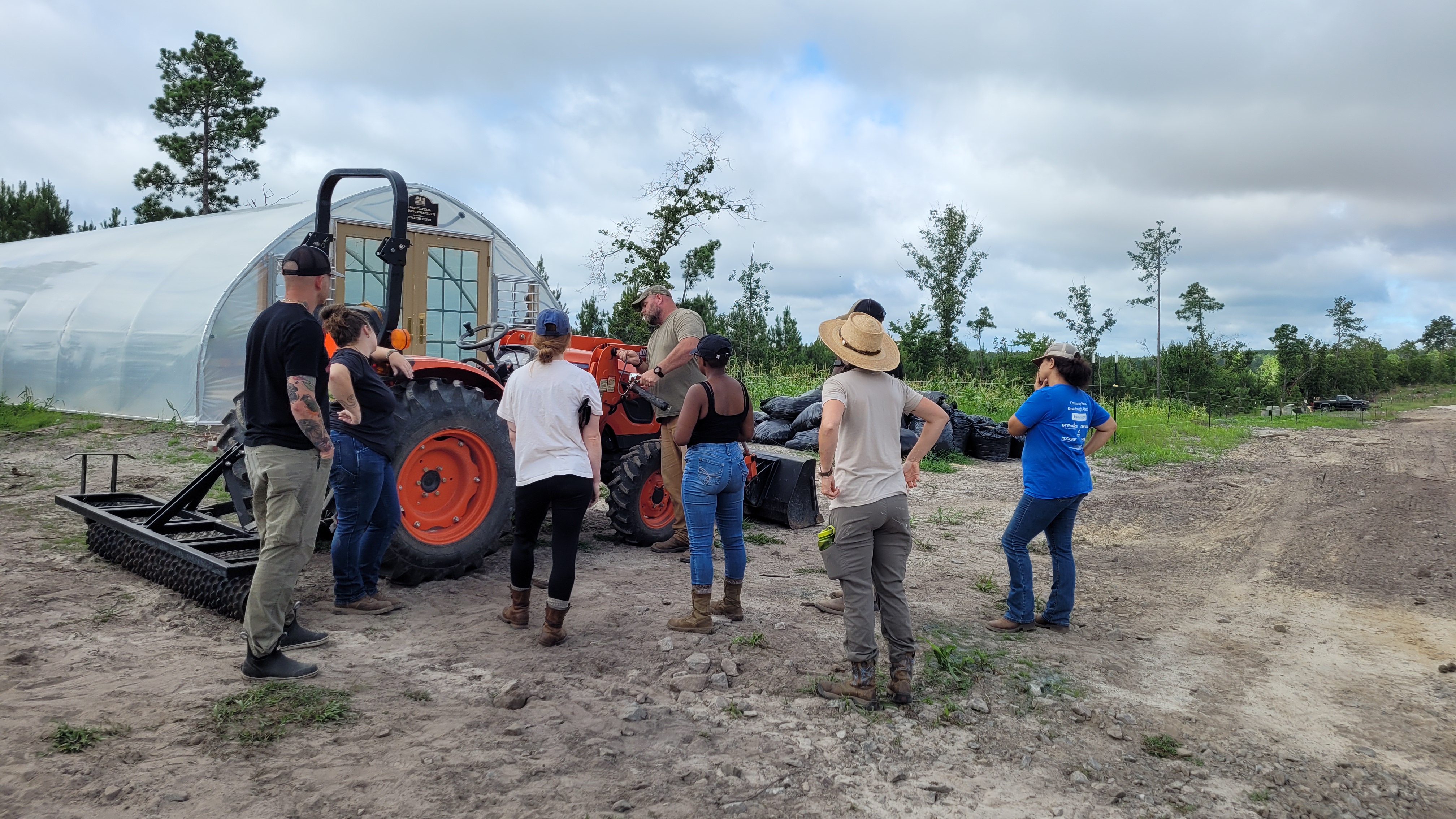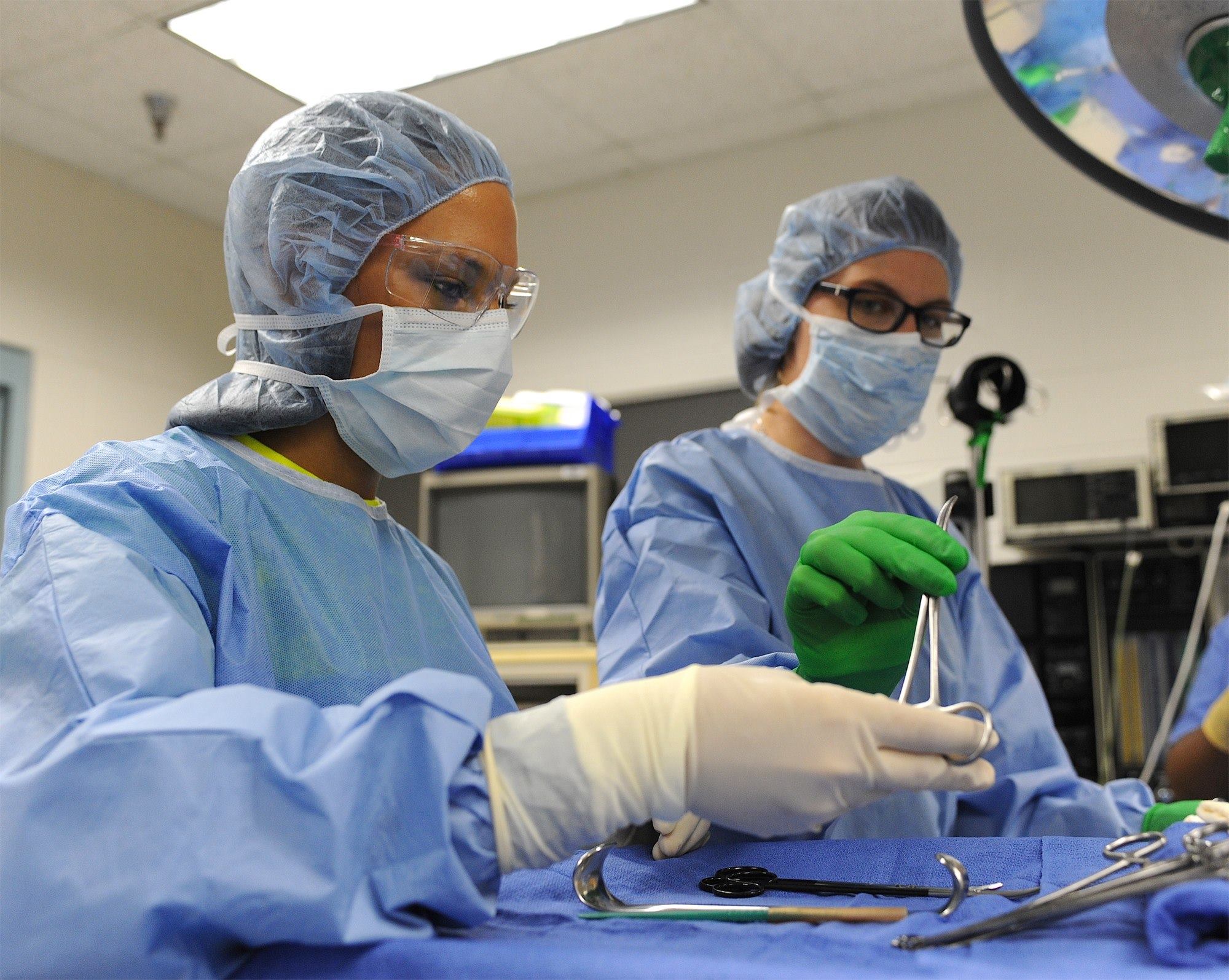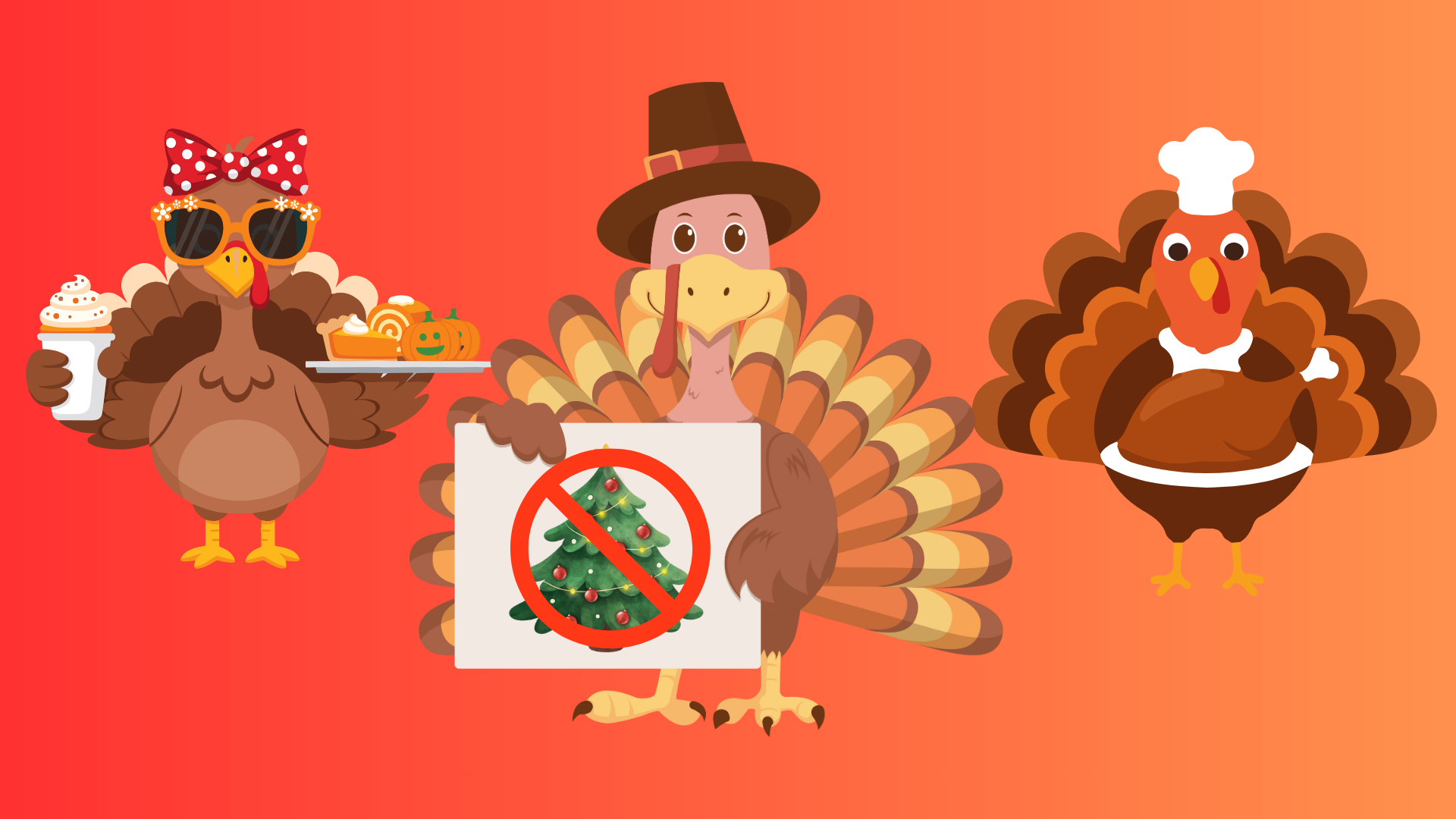
When Robert Elliott, founder of the Veteran’s Farm of North Carolina, left the Marine Corps, agriculture was a sort of coping mechanism.
“When I tell the story, I always tell about the chicken that saved my life,” he said.
When Elliott left for the Marine Corps, having witnessed firsthand the struggle that many farmers face as he grew up watching his parents in the meat industry, he had no intention of returning to the life of agriculture. He explained that many children who grow up on farms feel the same way in their adult life: “They leave and they don’t want to come back to it because you’re seeing constant struggles with financial issues in agriculture – either that or regulatory issues that are coming up.”
He hoped that the Marine Corps would be easier, but after being on active duty for five years, he was injured. After leaving the Marines, he worked with a DoD contractor from the same unit for the next 10 years and then the contract “went belly up.”
Like many veterans transitioning into civilian life, Elliott struggled with the change. “My first year back home, away from the Marine Corps, was extremely difficult for me and I became suicidal,” he said. “The only thing that seemed to help at the time was this chicken in my backyard and everything was pushing me back into the farm so I cranked back up.”
Knowing that he did not want to face the struggles that his family did growing up, Elliott “went and got as much business sense as [he] could into [his] head.” He analyzed financials and numbers. His work was primarily livestock-based.
He started making a living from a hog operation and then he received a small grant to buy chicken processing equipment for the farm.
“The organization that gave me the grant asked if I would come back and speak on my experience to folks that were interested in trying to get more veterans into agriculture,” Elliott explained. Major players like the Farm Bureau, Farm Credit, the VA and some veteran organizations were there.
His talk spread rapidly through media sources and then on to veterans. “I’m being contacted by veterans around North Carolina and the U.S. wanting to know, ‘How do I get into what you do?’...And, at the time, I was like, ‘I don’t know. Come on out to the farm. I’ll show you what I’m doing.’ And that’s how the Veteran’s Farm was born.”
When Elliott began this new journey, he already had the 'basic farm kid knowledge,” but he quickly realized that the people who were reaching out to him did not.
“Long story short, I came down to Fort Bragg [now Fort Liberty] working for NC State to be a military liaison for the College of Ag down here part-time. Fort Bragg [Liberty] was asking about an agricultural program, which is now known as the Soldier of Ag Program,” he said. Elliott built that and ran it for five years and that laid the framework of the foundation so he could develop a curriculum and training for veterans.
The Veteran’s Farm is 53 acres and students in the program get to do a little bit of everything, starting with the basic concepts. Gardening, working with livestock, collecting eggs, meat processing, operating a tractor, carpentry, electrical work and plumbing are among the areas students learn about. “While the students are out here,” Elliott said, “they get a wide variety of instruction.”
The Farm offers a three-month course that is very condensed but provides a 30,000-foot view of everything they might need to know and a six-month program that allows them to take care of the farm completely on their own. As new students come in, Elliott said the programs mimic the military in that the senior enlisted students teach the junior enlisted students.
The Veteran’s Farm of NC allows veterans, active duty military and spouses in the program.
Now, the Veteran’s Farm offers safety and health components as well as a mental health component and the organization encourages spouses to be present for both. Elliott shared that many farms fail because of communication breakdowns between the farmer and spouse and that many farmers face financial difficulties. The idea is that they want to head off those issues. “Most farm startups end in the first five years,” Elliott said.
Moreover, the Veteran’s Farm aims to look at veteran suicide issues holistically and how those numbers can be decreased. The goal is to give veterans agricultural skills to turn them into a farmer; from there, the farm has equipment that they maintain that the veteran community can use and a network of roughly 1,000 farmer veterans throughout the state. When a veteran in the program is staying local to North Carolina, Elliott plugs them into the network.
“What I’ve noticed over the years building the programs that are built, it became pretty much a solidified suicide mitigation model disguised as an agricultural program,” he said. “All of it is meant to give a veteran purpose… connect them with a career … in order for them to have connections outside of the military.”
The Veteran’s Farm also has a counselor on board with a farming background who is licensed in family therapy to help students combat the mental health struggles they might be facing.
Currently, the Veteran’s Farm of NC operates through USDA funds through one of their sub-agencies known as the National Institute of Food and Agriculture. Although that grant has been key to keeping the Farm going, the grant runs out next year. “Right now, we’re trying to aggressively do fundraising and figure out how we’re going to keep this going,” Elliott said.
Elliott hopes the Farm can get another grant or reapply for the grant they received before. The program, right now, is completely free for veterans and their families and Elliott hopes that one day, they can turn their program into a certificate program so they can accept GI Bill and tuition funds.
Businesses can help support the Veteran’s Farm of N.C. in a variety of ways.

The new program will be sharing space with students from the surgical technology and central sterile processing programs(pictured) following renovations and expansions to the space. Photo provided by FTCC.Fayetteville Technical Community College (FTC

Dr. Stuart Shelton has dedicated more than 20 years to providing exceptional high-risk obstetric care, through Cape Fear Valley Health. Photo provided by Dr. Shelton.Dr. Stuart Shelton, a renowned maternal-fetal medicine specialist at Cape Fear Valle

©NOMICASTUDIO, ©PLAYFULSTUDIO AND ©IMAGES-DE-HSR VIA CANVA.COMIt has been a recent topic of discussion in the Greater Fayetteville Business Journal office as to when it is appropriate to begin putting up Christmas decorations. One of my coworkers sha